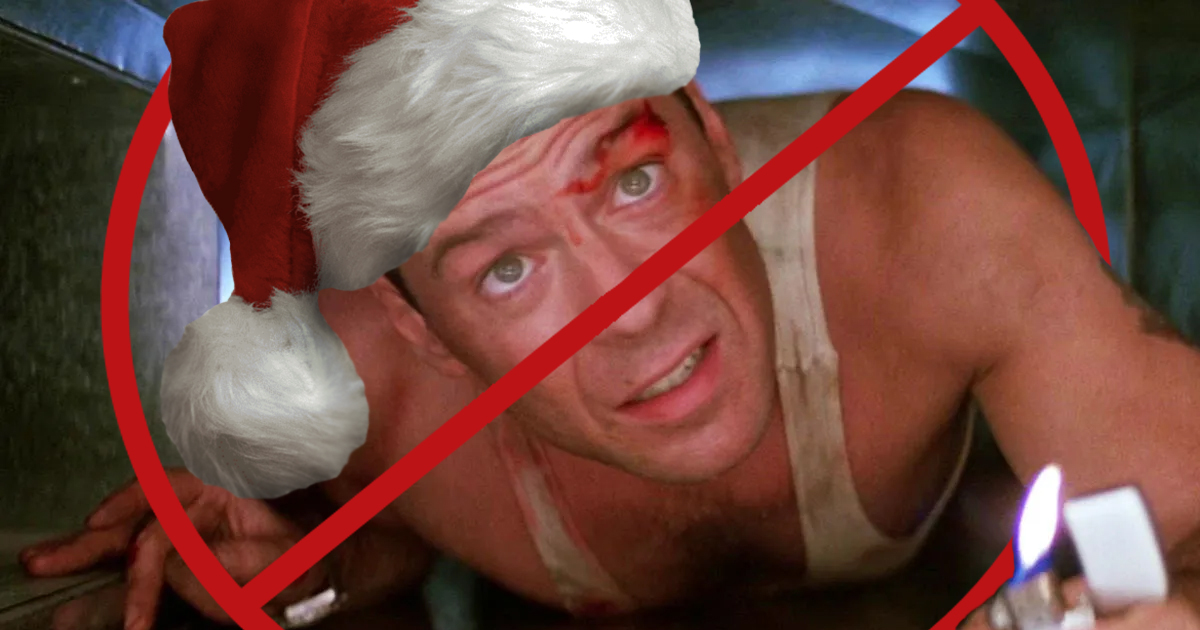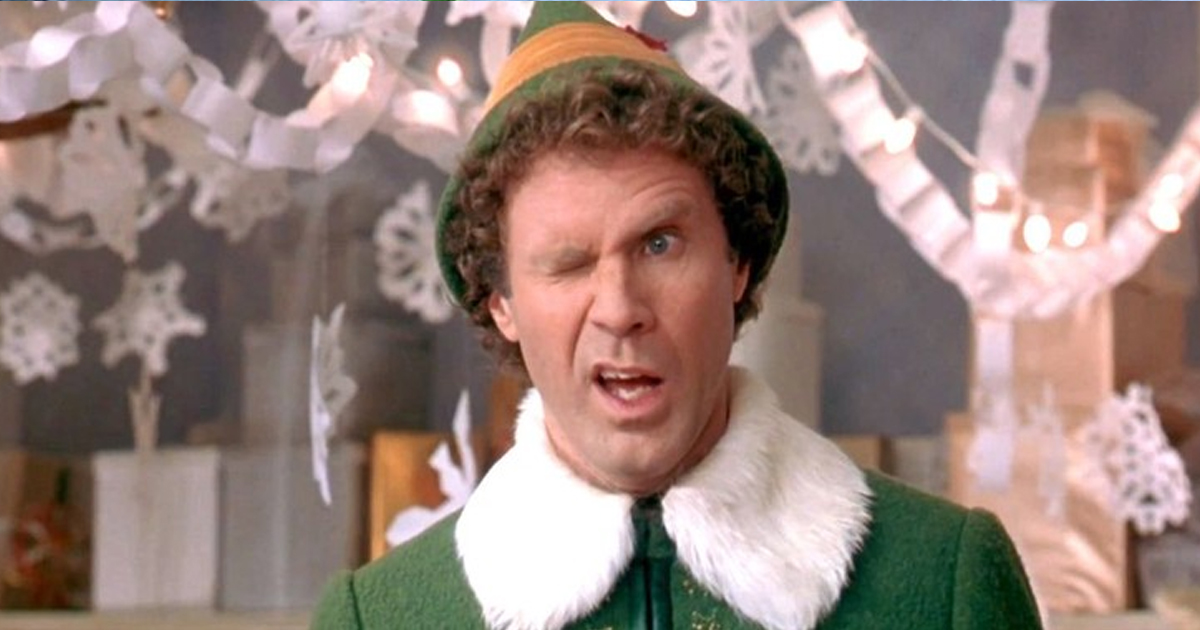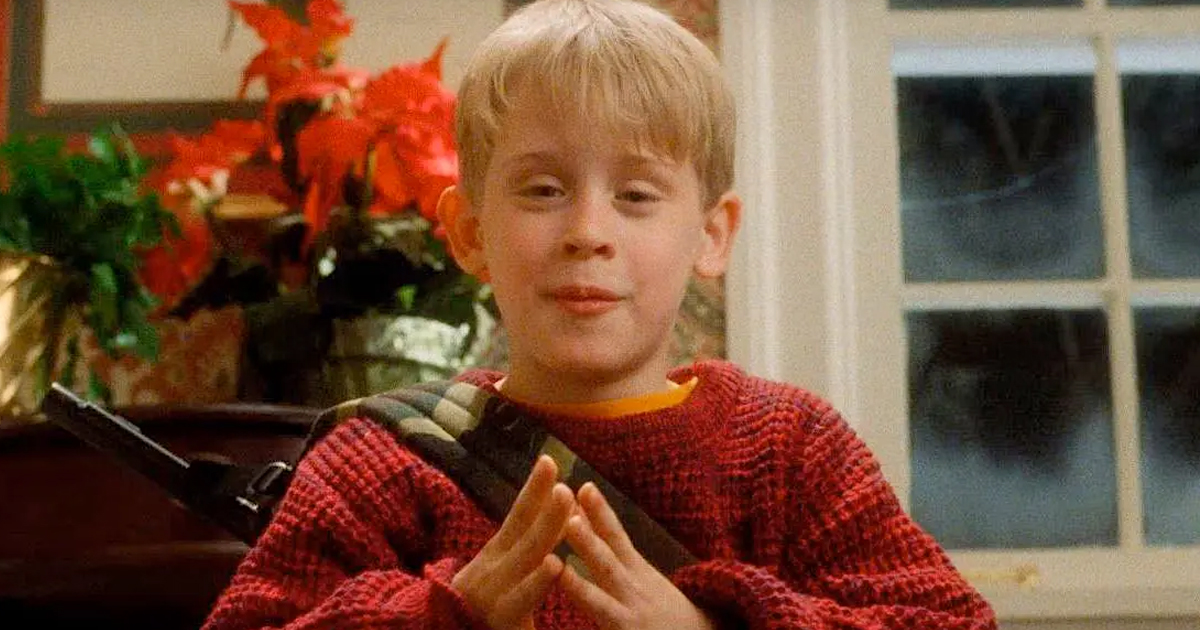
“Now please, listen very carefully- Die Hard is not a Christmas movie!”
Those are not the words of a disgruntled fanboy trolling the internet. No, those words were spoken by the star of Die Hard, Bruce Willis, at the 2018 Comedy Central Roast in his honor.
The yearly Möbius strip debate of whether or not Die Hard is a Christmas film has reared its ugly head once again. Hearing the iron-fist proclamation from the film’s star has done little to dissuade the devotees who stand by their belief in Die Hard’s Christmas film status. “What does an actor know?” they ask. “If anyone would know for sure, it would be the film’s writer.”
Well, screenwriter Jeb Stuart recently doubled down on his assertion that the action film is, in fact, a Christmas film, citing being in L.A. away from his North Carolina home around the holidays as the inspiration for the story. It should be noted, however, that Die Hard is based on the 1979 Roderick Thorp book, “Nothing Lasts Forever,” which takes place on Christmas Eve, so Stuart’s supposed personal motivation is an unreliable source.
Assuming that we are not taking Stuart’s statement with a grain of salt and that he truly believes that he wrote a Christmas film, I will argue that he did so erroneously. What he did write, however, was a Christmas-themed film, a distinction I am here to demonstrate.
Just what is a Christmas film?
Before we can delve into why Die Hard isn’t a Christmas film, we must first establish what a Christmas film is. At its core, a Christmas film is about Christmas. I’m aware that statement is a bit vague, but there are a few qualifiers for that distinction.
- The story should be centered on the actual holiday of Christmas (by default, Christmas Eve qualifies as well), and it should be crucial to the plot of the film.
- The story should focus on elements directly tied to the holiday, such as Santa, elves, reindeer, the North Pole, the spirit of Christmas, etc.
If a film does not include any of those elements, then it’s a Christmas-themed film. It may sound like semantics, but a Christmas-themed film doesn’t actually have to be about Christmas, allowing for a much broader canvas for storytelling. Simply incorporating Christmas decor and Christmas songs in a film do not make it a Christmas film. You can add Christmas lights and ornaments to a coat rack, but it doesn’t make it a Christmas tree. It makes it a Christmas-themed coat rack.
Obviously, a film like Elf, which focuses on one of Santa’s elves and deals with the spirit of Christmas, falls firmly in the Christmas film category, as do films like A Christmas Story and National Lampoon’s Christmas Vacation, which center on their respective families and the build-up to Christmas Day.
But for films like Die Hard, Home Alone, and even White Christmas, the holiday isn’t as relevant as the rest of the plot. These easily fall into the Christmas-themed category. There are arguments to be made either way for Gremlins, which has Christmas theming up the wazoo, but the story is about the gremlins raising havoc and taking over the town. The trickiness lies in the fact that Gizmo was a Christmas gift. That added to the Christmas theming may be enough to check the Christmas film box, but I could be persuaded either way.
It’s a Wonderful Life may actually be furthest from a Christmas movie than most other “Christmas films.” It almost doesn’t even qualify as a Christmas-themed film. The film is bookended by Christmas Eve, but it is nearly completely insignificant to the film’s plot or climax. In fact, the song sung at the film’s end, Auld Lang Syne, is traditionally associated with New Year’s Eve. Under these parameters, the majority of seasonal TV Hallmark movies would fall under the Christmas-themed movie category as well, despite the often overzealous Christmas set decoration and over-sentimentality.
So where did this debate come from? To my recollection, the notion of Die Hard being a Christmas film was the result of a revolt against the rising number of television Hallmark Christmas (themed) films. In an act of tongue-in-cheek defiance, action fans wanted to be able to claim their own Christmas film, and what better film to latch on to than the greatest action film of all time? It wasn’t a proper Christmas film, but it was close enough to justify the claim.
As time went on, the tongue-in-cheek aspect evolved into an earnest belief. Even the 20th Century Fox’s marketing department jumped on the band wagon, eventually releasing a Christmas sweater-themed Die Hard Blu-ray set. But all of the marketing in the world couldn’t hide the fact that the film isn’t actually about Christmas.
The Christmas film test
There is a (relatively) fool-proof way of determining which of the two camps a film belongs- remove Christmas from the plot. If the film still makes sense, it’s a Christmas-themed film. If it doesn’t’, it’s a Christmas movie. If Christmas was taken out of the Die Hard script, would it have any impact on the plot? Sure, they are all gathered for a Christmas party, but it could have been any type of work gathering. And sure, the film is peppered with Christmas songs and Christmas decorations, but take all of those away, and it’s just an action movie (sorry, it’s just a kick-ass action movie). There is no element in the film’s actual plot that ties it to Christmas.
If you can tweak one small element that is not crucial to the film’s plot that removes the Christmas-related element, then it shifts into the Christmas-themed camp. Kevin McCallister’s family could have been traveling to Paris for any reason. There is no importance to it being for Christmas. And Holly McCain could have been at Nakatomi Plaza celebrating a work retirement. Removing Christmas should fundamentally change the story and structure of a script if it is truly going to be considered to be a Christmas film.
According to the film’s director, John McTiernan, Die Hard was always intended as a terrorist film. He stated it was about the “stern face off authority stepping in to put things right again.” McTiernan thinks essence of the film can be summed up by Clint Eastwood’s “Do you feel lucky, punk?” scene in Dirty Harry. McTiernan’s goal was to add a layer of anti-capitalism to the story. His inspiration- It’s a Wonderful Life, a film previously established as a (barely) Christmas-themed film.
Look, I’m not here to pee on your poinsettia. If you want to keep on believing that Die Hard is a Christmas film, then have at it. But whether you can admit to the fact that is actually a Christmas-themed film or not, I think we can all agree that Die Hard is the best damned holly jolly, hall-decking, nose-glowing action flick of all time.




Exactly, I love die hard but it would be the same if was set on New Year’s Eve. I always considered it an action movie with a Christmas backdrop.